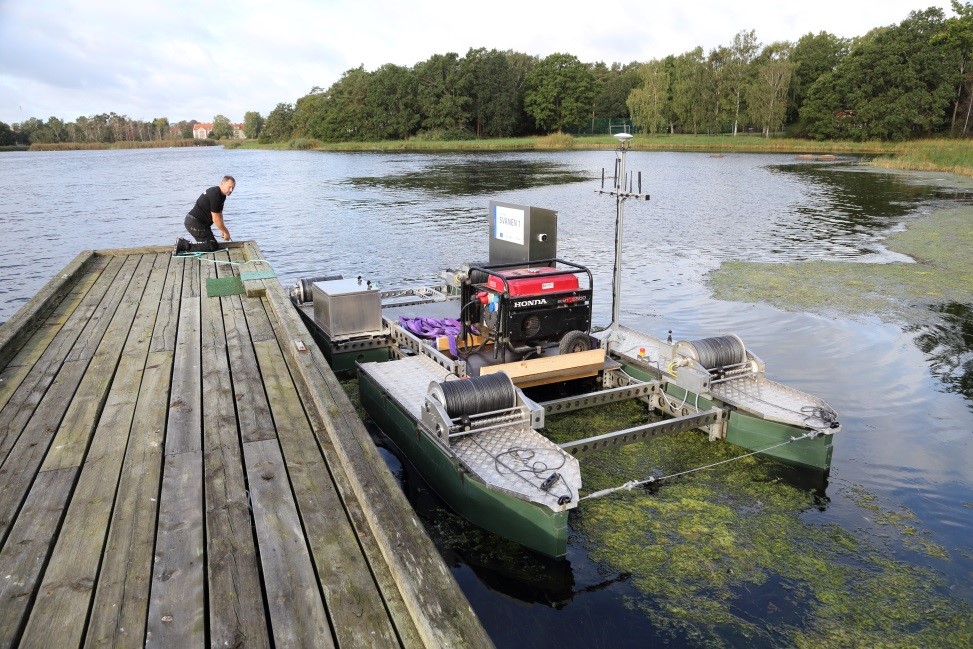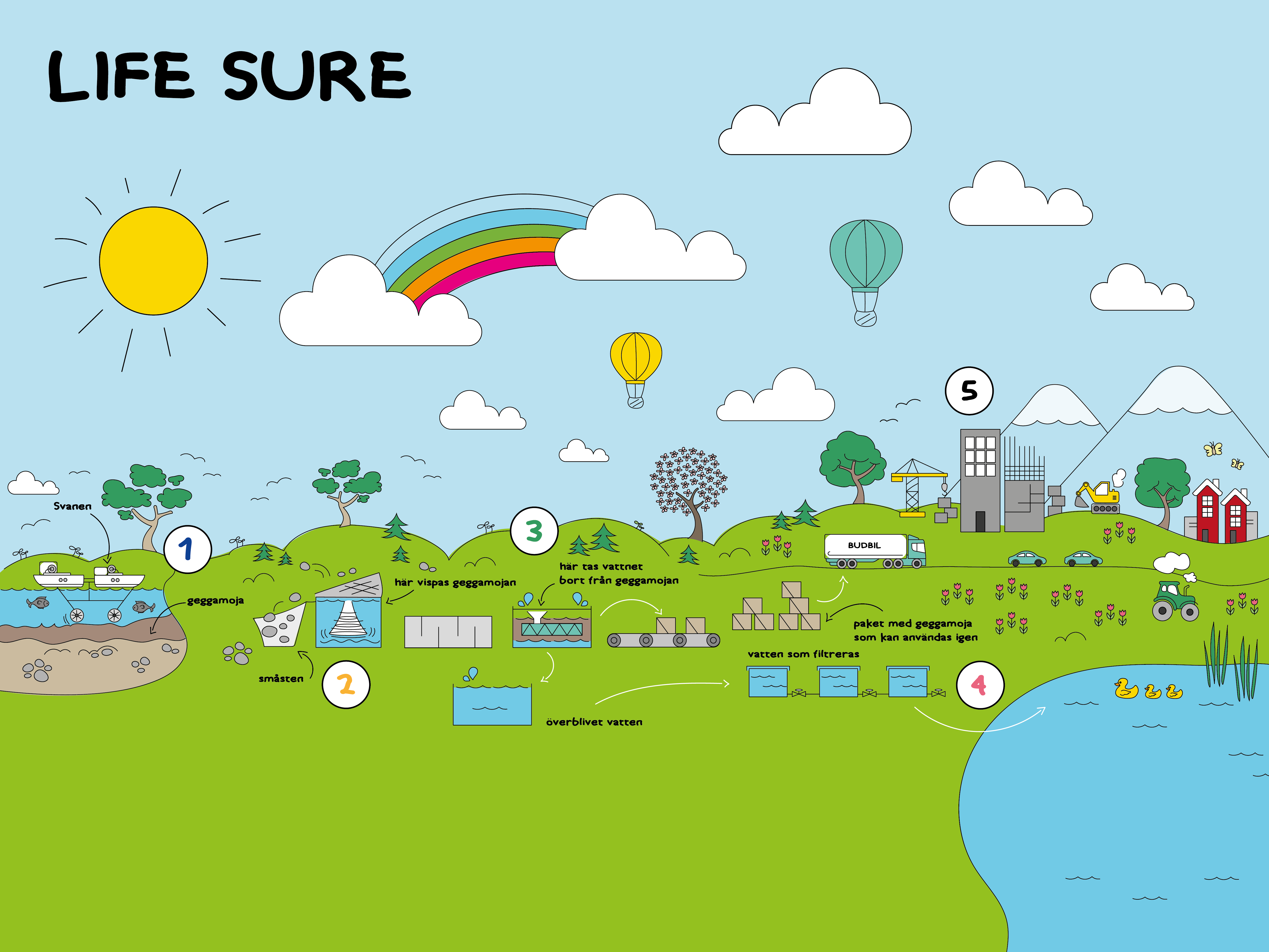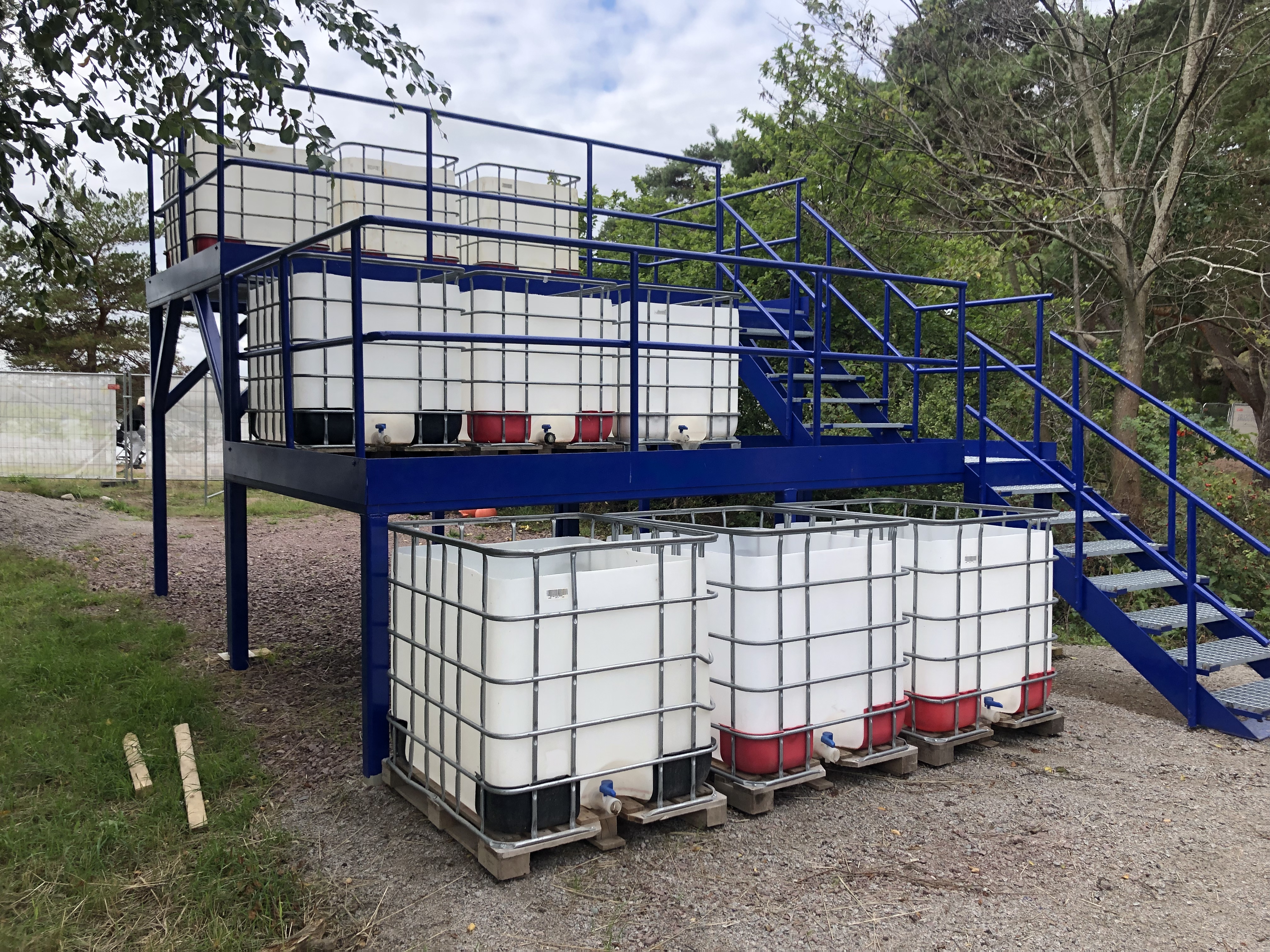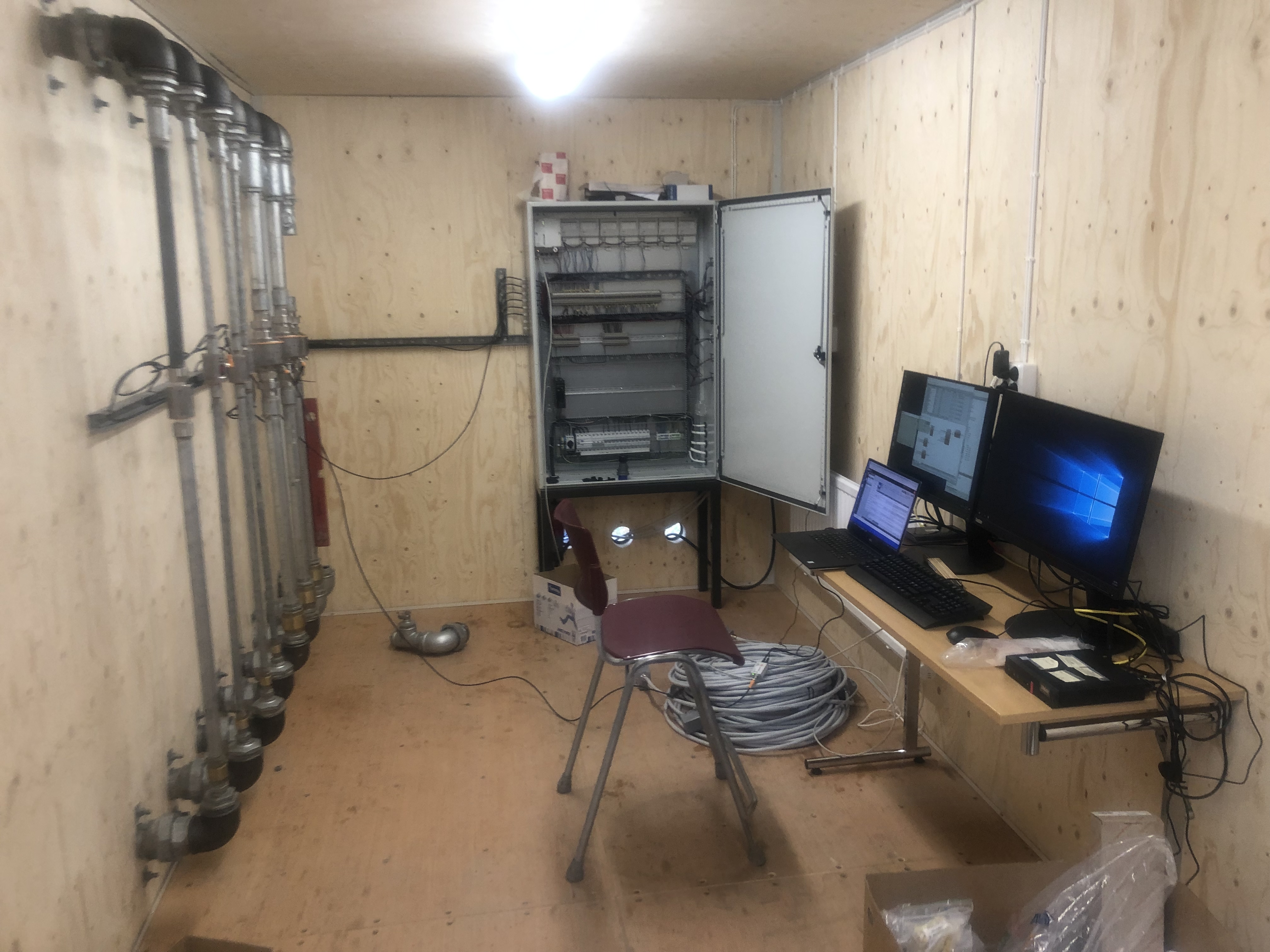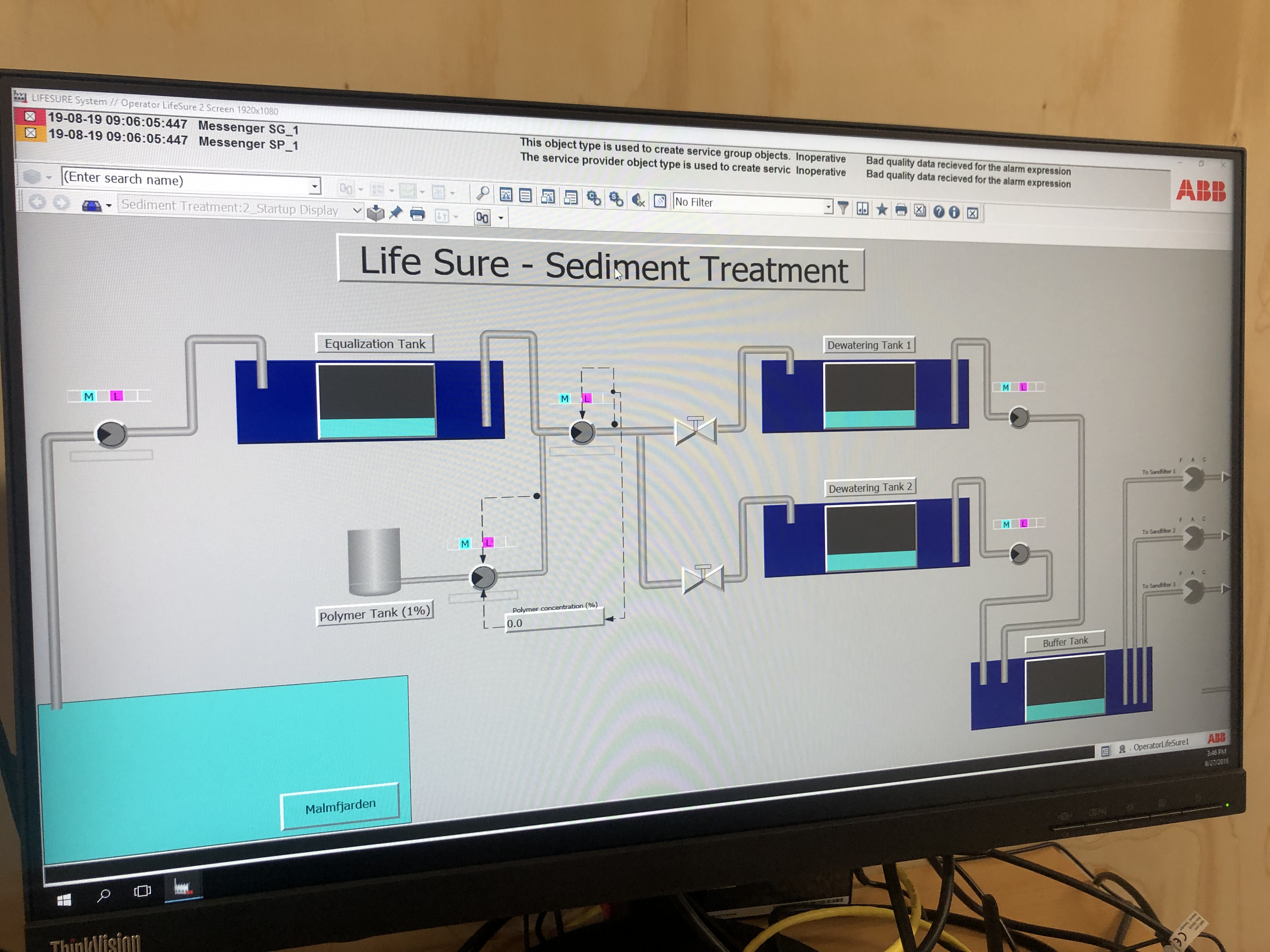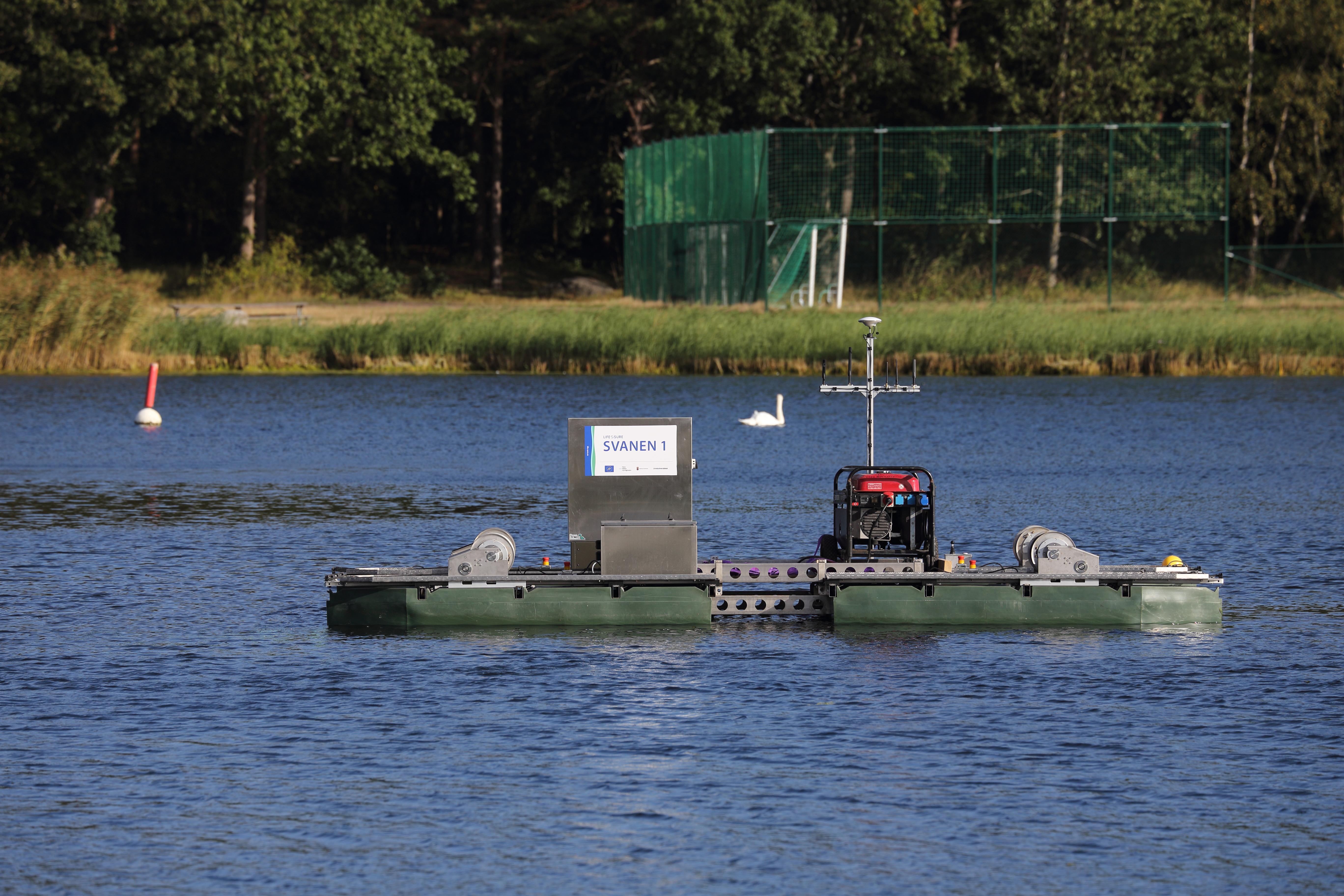Background and objectives
A well-known environmental problem within the Baltic Sea region is caused from shallowed overgrown bays, which occur when dead biota and particles are transported to coastal areas and accumulate at the bottom, adding to the sediments. This negative process has been accelerated by climate change and human activities, such as stormwater runoff from agricultural, industrial and urban areas that brings not only particles to shallow water bodies but also contaminants such as metals and nutrients. The overall objective of the project LifeSURE is to test and demonstrate how to restore the ecological status and hydro morphology of Malmfjärden Bay in Kalmar, Southeast of Sweden, by using an innovative dredging method that does not disturb the aquatic environment and consequently human health. Sediments will be removed and treated as secondary raw material within the circular economy concept. The project aims also to disseminate, transfer and replicate the project ideas and results within Sweden and Europe.
Illustration of the recirculation concept of LIFE SURE
Current status – an up-date from the project manager
The project is funded by the EU's climate and environmental program, LIFE, and the Swedish Agency for Marine and Water Management. LIFE SURE was started in 2016 and is currently in a phase of construction and pilot tests in Malmfjärden, Kalmar. Tomas Lexinger is project manager for LIFE SURE in Kalmar Municipality. He will tell us more.
- In the project we will recycle sediments that we retrieve from the seabed with minimal impact on the aquatic life. The goal is to recycle 70 percent of the sludge that is removed. The seabed of the Baltic Sea is full of toxic substances and dead zones, this project can make a difference.
- At the moment the water based unit of the equipment is being tested on the water of Malmfjarden. It is called “the Swan” by the staff and has some similarities with a vacuum cleaner robot - clening seabeds instead of kitchen floors. The land based treatment plant for water and sludge will be connected and tested before the winter. If everything works out as planned, the whole system will be operated in a full scale test during 2020.
- Pilot tests of the equipment is a key part of the project and absolutely essential to be able to validate the functionality, environmental benefits and cost effectiveness. An important target is to achieve a high level of automation in the running of both the water based and land based units, says Tomas Lexinger.
- LIFE SURE is a € 3.5 million investment with high potential and it stands out among other externally financed projects in Kalmar municipality. We are proud to manage the project and do put a lot of effort into achieving good results.
Test installation of the dredging unit ”the Swan” performed by the technical manger Ulf Rickardsson. Photo: Jan Magnusson, Kalmar Municipality
Filtration units (one part of the land based equipment)
Foto: LIFE SURE
The Linneaus University – method development and marine monitoring
The project is a joint effort between Kalmar Municipality and the Linnaeus University. The University brings competence to monitor impacts on the aquatic life in the pilot area and are also responsible for testing different methods to extract metals and other elements from the dredged sediments.
Laura Ferrans - a postdoctor in biology and environmental science at the Linnaeus University in Kalmar is one of the researchers working in the project.
- We are the eyes and the ears of the project and make sure that the effects on the marine environment are measured continuously in the project.
Laura Ferrans project group from the Linnaeus University involves four researchers. At the moment they are preparing samples of the water and sediments and are planning tests to extract elements from the sludge.
- So far the samples from the seabed show high values of nutrients.
Laura argues that the ambition to recirculate and make use of the dredged sediments is the core value of the project. The cooperation with the municipality is important as scientists are invited to contribute to the development of practical and near market solutions.
The lab at the project test site on the shore of Malmfjärden
Photo: LIFE SURE
And finally the project manager Tomas Lexinger adds an observation regarding management of this type of complex projects.
- The project have had its challenges, technically, scientifically, administrative, economically and legally. The importance of a dedicated team with a broad set of competences shall not be underestimated. Tomas would like to credit all persons in the project team and underline that everyone are valuable and indispensable.
The water based dredging unit ”the Swan” in operation in Malmfjärden
Photo: Jan Magnusson, Kalmar municipality
